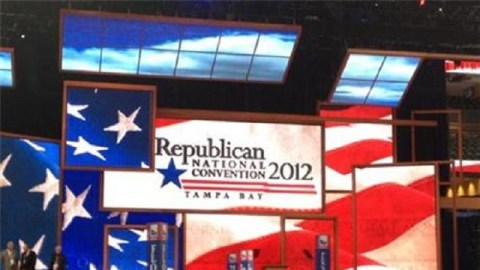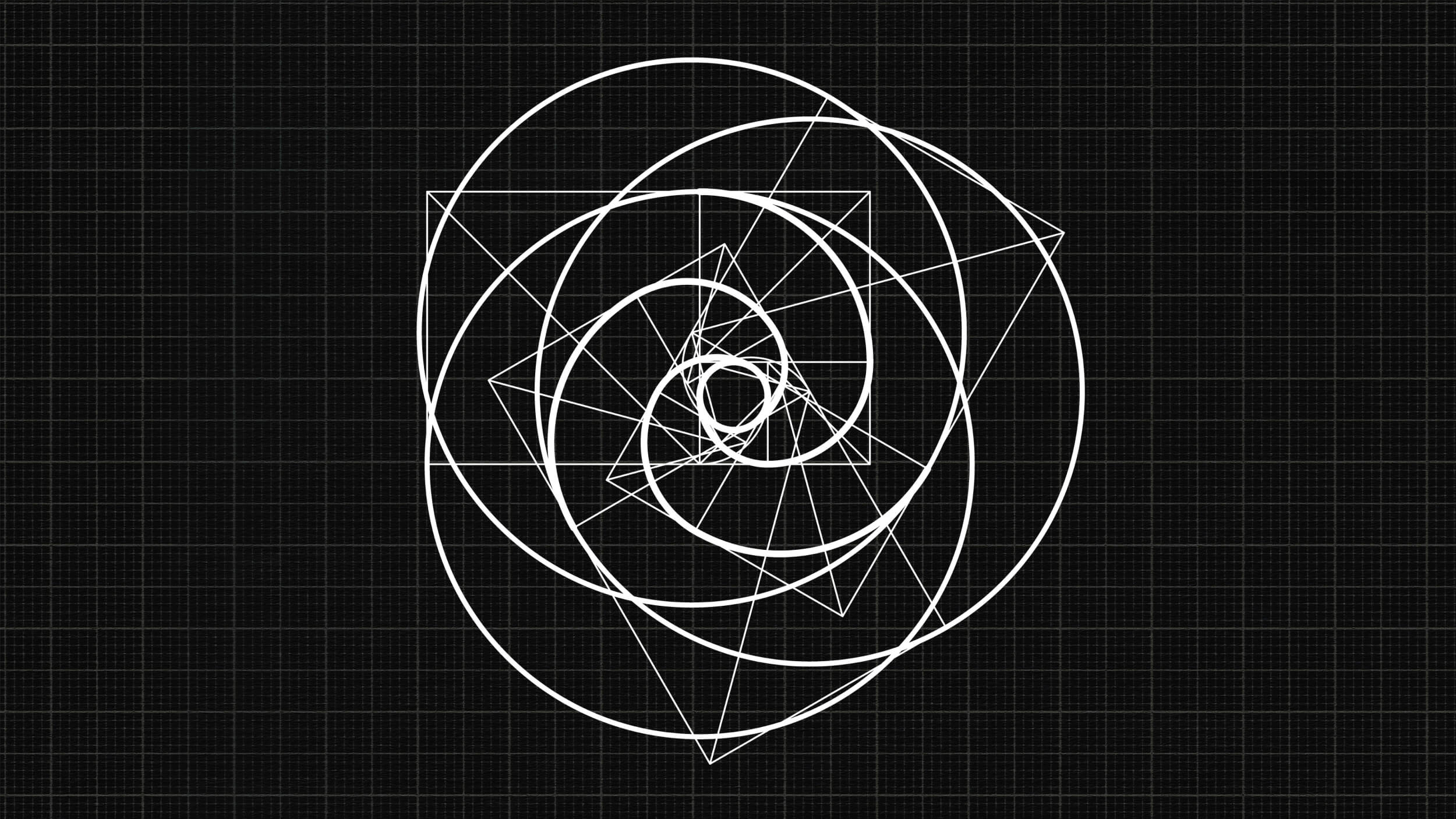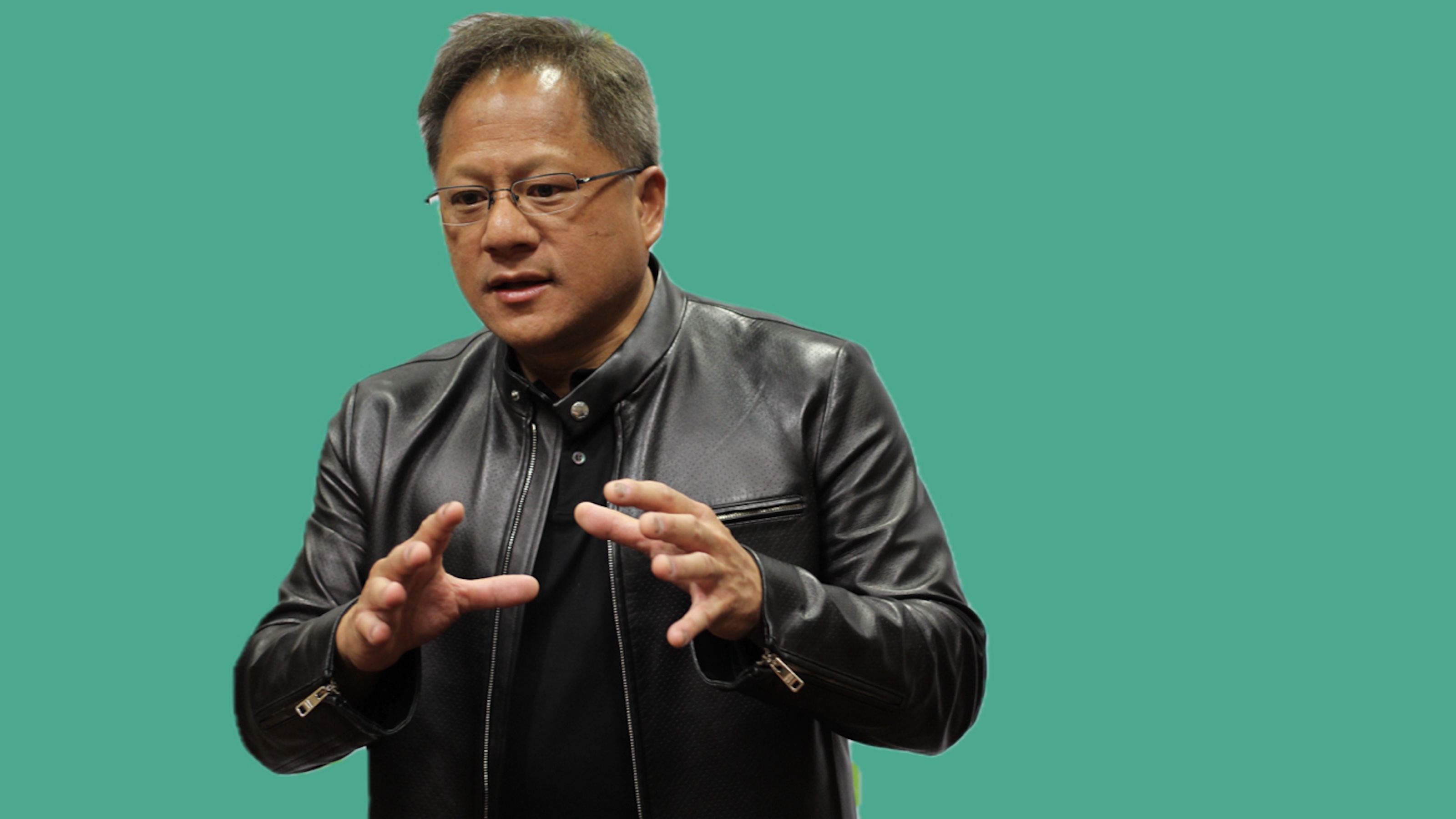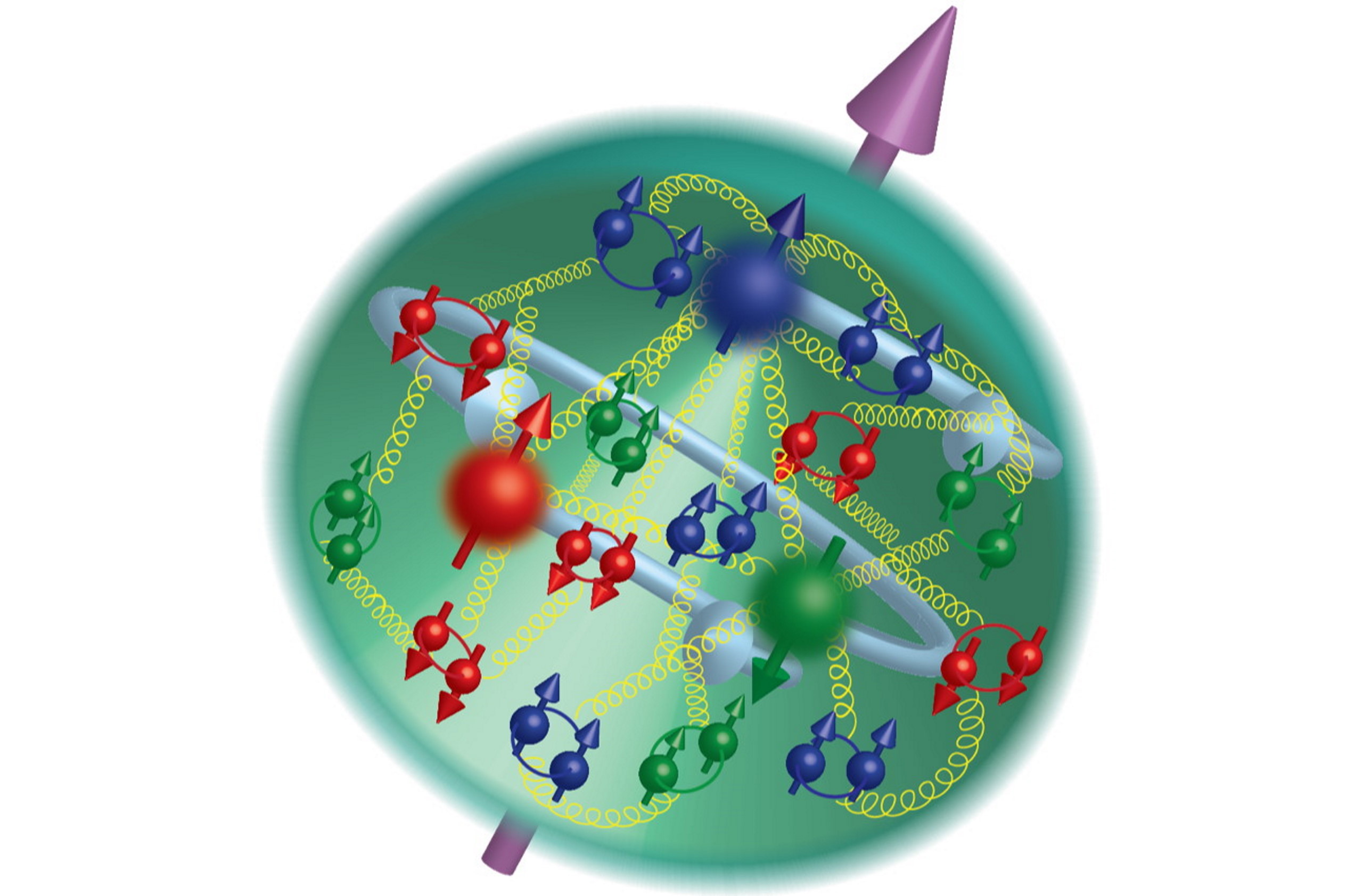What’s Frank Lloyd Wright Doing at the Republican National Convention?

Now that Hurricane Isaac is off to wreck havoc on New Orleans, the 2012 Republican National Convention can get down to business. The list of people scheduled to parade across my television screen features the usual suspects (Mitt Romney, Paul Ryan, and Chris Christie) and even some unusual suspects (Lynyrd Skynyrd and Kid Rock), but one unlisted and highly unusual name really caught my eye—American architect Frank Lloyd Wright. The backdrop of the speaker’s stage (shown above)—the eye of the 4-day political hurricane—features interconnecting horizontal shapes and bands of windows meant to pay homage to Wright’s “Prairie style.” The designers hoped to convey the warmth, Midwestern flavor, and quintessential Americanness of Wright’s vision, but the additional connotations Wright brings may pose problems for Republicans or slyly send messages to supporters—all depending on how you see Wright and the GOP.
As Los Angeles Times Architecture Critic Christopher Hawthorne explained in a recent piece on the Wright-inspired set, the convention’s lead production designer, Jim Fenhagen, Googled Wright’s “Prarie Style” and drew inspiration from the images he found, although he contends that the references in the final piece are “faint.” The Wright on the convention stage is decidedly early Wright—the more accessible designer of Chicago’s Robie House—and not the wild radical who built Fallingwater or the Guggenheim Museum. Considering how famous Wright’s work is, it’s a little confounding that a production designer would need to Google it, but I think that the debt is far from faint, which may be a problem or, perhaps, the real intent.
The long-haired, cape-wearing Wright seems an odd fit for modern conservatism. Wright infamously left his family to run off with his mistress, so the family values platform plank would be used to smack him in the face. As shown by Fallingwater and its aggressive integration with its natural surroundings, Wright was an environmentalist before environmentalism was cool. As unconventional in his views on architecture as on religion, Wright shares little with today’s Republicans save a common birthplace of Wisconsin with VP nominee Ryan. Perhaps the designers and convention organizers decided that the homage was obscure enough (and Wright’s personal life even more obscured by the passage of time) to make it a safe play.
However, for those who believe in the existence (and power) of “dog-whistle politics,” the term given to obscure references to radical ideas meant to be “heard” by believers only the way that dogs can hear frequencies that humans can’t, then the Wright-inspired set is whistling away. Ayn Rand based the architect-hero character in The Fountainhead on Wright. Howard Roark soon became the poster boy for Rand’s Objectivist philosophical system. (Rand idolized Wright and tried to connect with him while writing the book, only to have Wright resist. The two became friends after the book’s publication in 1943, however.) Rand’s ideas are a lightning rod for controversy—you either love or hate the novels and the ideas they propose.
The Wright-Rand connection becomes relevant when you learn that Paul Ryan’s been a fan of Rand’s ideas for many years, although he’s attempted to back off in interviews for the past year or so. When Ryan stands in front of that stage accepting the VP nomination with an homage to the ultimate Randian hero looming over his shoulder, the associations might be too hard to ignore. The designers claim that they decided on the Wright-inspired look before Romney decided on Ryan, but even if that’s true, the connections are there. Whether the connections are intentional or not, a problem or a “dog-whistle” boon, finding the famous architect in the middle of the festivities is something to behold for all interested parties. I only wish Wright were here to witness it and speak his own mind.





